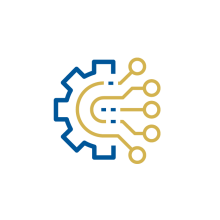The Partnerships for Innovation, or PFI, program has a rich history of providing opportunities for researchers and innovators to turn their research into tangible solutions to societal challenges. In accordance with the American Innovation and Competitiveness Act, the PFI program supports use-inspired translational research, prototype development and the enhancement of partnerships across U.S. academia, nonprofits and industry.
The PFI program supports the full cycle of discovery and innovation across all areas of science and engineering supported by the U.S. National Science Foundation.
Aligned within the Directorate for Technology, Innovation and Partnerships, or TIP, PFI leverages ongoing NSF research investments to drive research and innovation, leading more rapidly to national, societal and economic benefits. PFI awardees have the opportunity to move their ideas from the lab to society while gaining access to a range of NSF resources and funding opportunities.
Translating research into societal impacts
Through the PFI program, NSF-funded researchers can increase the impact of their translational research and address pressing national and societal challenges. Several examples of PFI-funded projects are featured below.
Using new technologies to create alternative plant pest control for the
agricultural and food industry.
NSF-2043534 - University of Illinois at Chicago
- Developing an inexpensive organic and biodegradable product to combat plant infections.
- Reducing pest pressures and increasing food security.
- Promoting sustainable farming practices and fostering community economic and environmental stability.
Developing a new battery storage system to improve resilience of the grid.
NSF-2044465 - University of California, San Diego
- Developing a new battery storage system through a joint university-industry research and development team.
- Commercializing affordable and safe energy storage that puts power at people's fingertips, reducing transmission losses and lowering costs.
- Making a positive economic impact by partnering with small businesses and expanding energy infrastructure.
Creating products from decommissioned wind turbine blades.
NSF-2016409 - Georgia Tech Research Corporation
- Creating a range of architectural, engineering and construction products from decommissioned wind turbine blades.
- Providing alternative disposal solutions for large-scale infrastructure waste.
- Partnering with industry to promote innovation and environmental sustainability.
Developing intelligent robotic technology to complement human care.
NSF-1717701 - Brown University
- Developing an affordable robotic dog or cat to facilitate and improve emotional and cognitive support for the elderly.
- Advancing research insights from cognitive and behavioral sciences, computer science and industrial design to create products to enable more people to continue living independently.
- Reducing the burden of care for family members and health care workers.
Creating a rapid sensor to reduce health risks for all.
NSF-2029532 - Iowa State University
- Developing a rapid COVID-19 sensor that allows for user testing at home.
- Reducing the time and effort for COVID-19 diagnosis and providing a more efficient response to outbreaks.
- Allowing resources to be more efficiently allocated by local and federal governments.
Transforming vocational training to support industry workers.
NSF-1719031 - University of Texas at Arlington
- Developing a smart robot-based vocational assessment and intervention system to assess the physical, cognitive and collaboration skills of an industry worker.
- Transforming traditional vocational training and rehabilitation practices through an evidence-based and personalized system.
- Providing low-cost vocational training solutions that can have substantial economic and societal benefits across diverse economic sectors.

